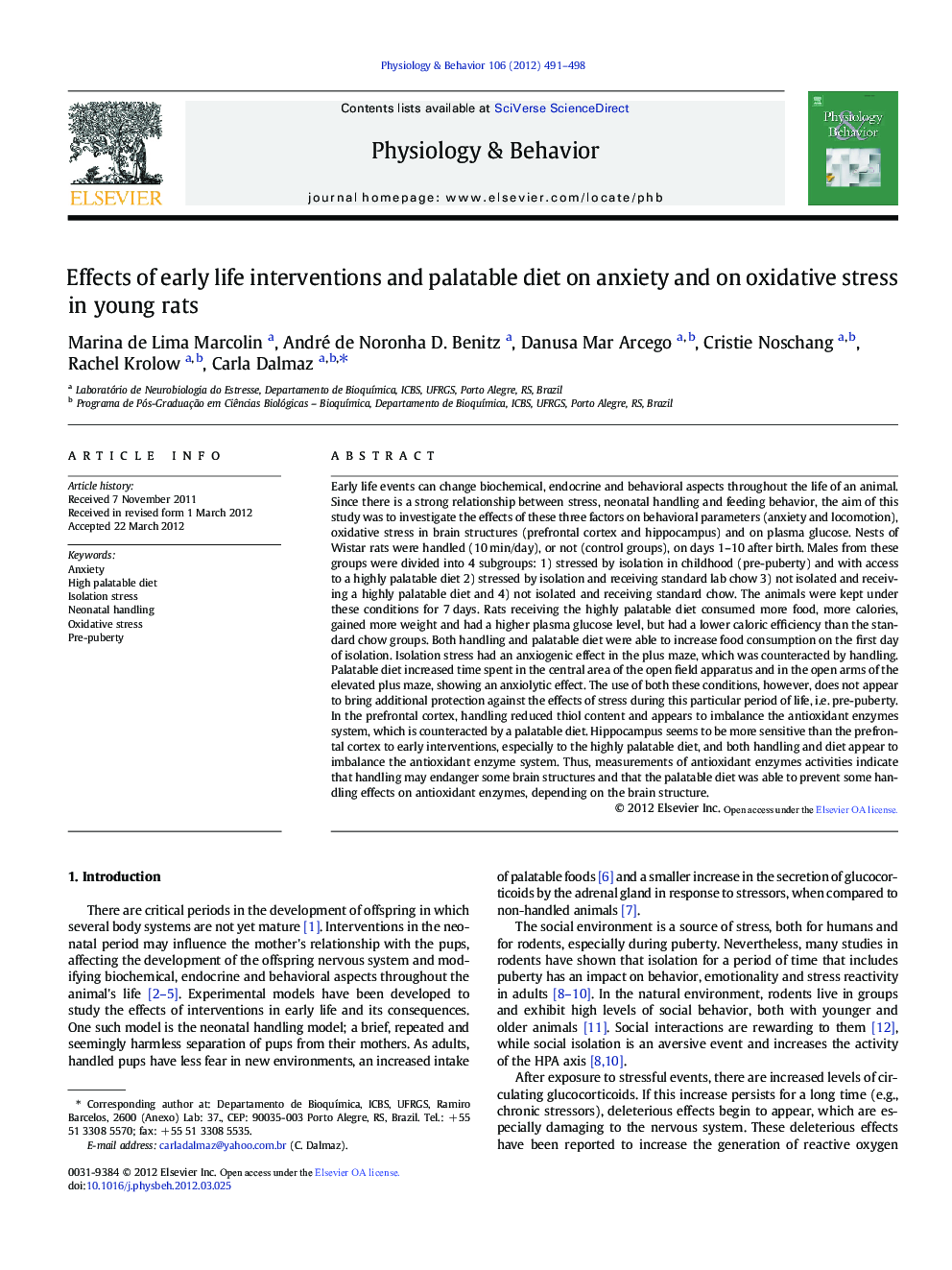| کد مقاله | کد نشریه | سال انتشار | مقاله انگلیسی | نسخه تمام متن |
|---|---|---|---|---|
| 5924975 | 1166337 | 2012 | 8 صفحه PDF | دانلود رایگان |

Early life events can change biochemical, endocrine and behavioral aspects throughout the life of an animal. Since there is a strong relationship between stress, neonatal handling and feeding behavior, the aim of this study was to investigate the effects of these three factors on behavioral parameters (anxiety and locomotion), oxidative stress in brain structures (prefrontal cortex and hippocampus) and on plasma glucose. Nests of Wistar rats were handled (10Â min/day), or not (control groups), on days 1-10 after birth. Males from these groups were divided into 4 subgroups: 1) stressed by isolation in childhood (pre-puberty) and with access to a highly palatable diet 2) stressed by isolation and receiving standard lab chow 3) not isolated and receiving a highly palatable diet and 4) not isolated and receiving standard chow. The animals were kept under these conditions for 7Â days. Rats receiving the highly palatable diet consumed more food, more calories, gained more weight and had a higher plasma glucose level, but had a lower caloric efficiency than the standard chow groups. Both handling and palatable diet were able to increase food consumption on the first day of isolation. Isolation stress had an anxiogenic effect in the plus maze, which was counteracted by handling. Palatable diet increased time spent in the central area of the open field apparatus and in the open arms of the elevated plus maze, showing an anxiolytic effect. The use of both these conditions, however, does not appear to bring additional protection against the effects of stress during this particular period of life, i.e. pre-puberty. In the prefrontal cortex, handling reduced thiol content and appears to imbalance the antioxidant enzymes system, which is counteracted by a palatable diet. Hippocampus seems to be more sensitive than the prefrontal cortex to early interventions, especially to the highly palatable diet, and both handling and diet appear to imbalance the antioxidant enzyme system. Thus, measurements of antioxidant enzymes activities indicate that handling may endanger some brain structures and that the palatable diet was able to prevent some handling effects on antioxidant enzymes, depending on the brain structure.
⺠Isolation in the pre-pubertal period increases anxiety. ⺠Palatable diet counteracts this anxiogenic effect, but reduces antioxidant defenses.⺠Neonatal handling had a small effect, reducing isolation-induced anxiety.
Journal: Physiology & Behavior - Volume 106, Issue 4, 25 June 2012, Pages 491-498